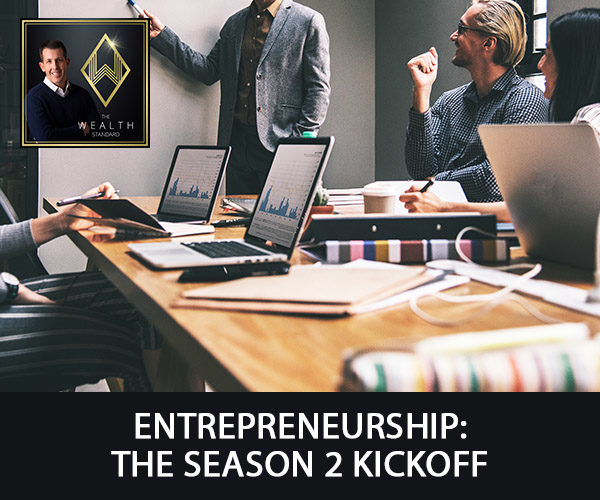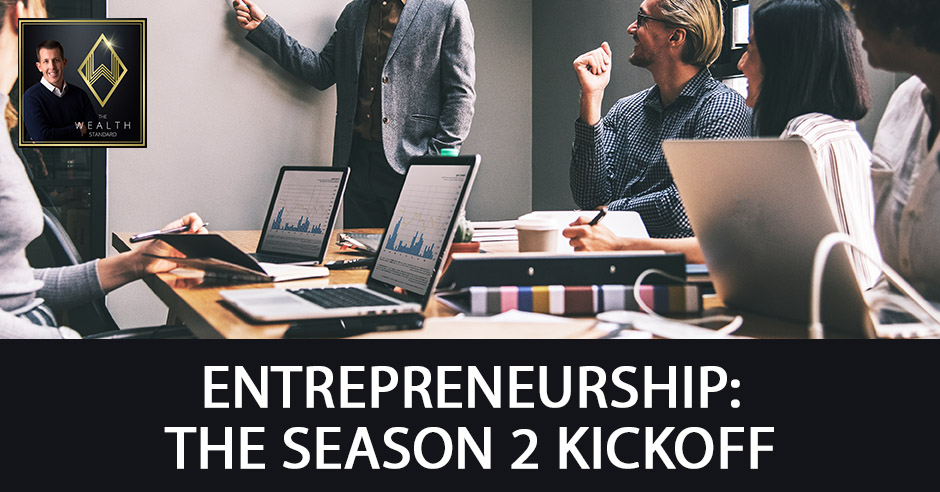Minimizing Failures And Maximizing Success In Startups With Mike Moyer
Podcast: Play in new window | Download
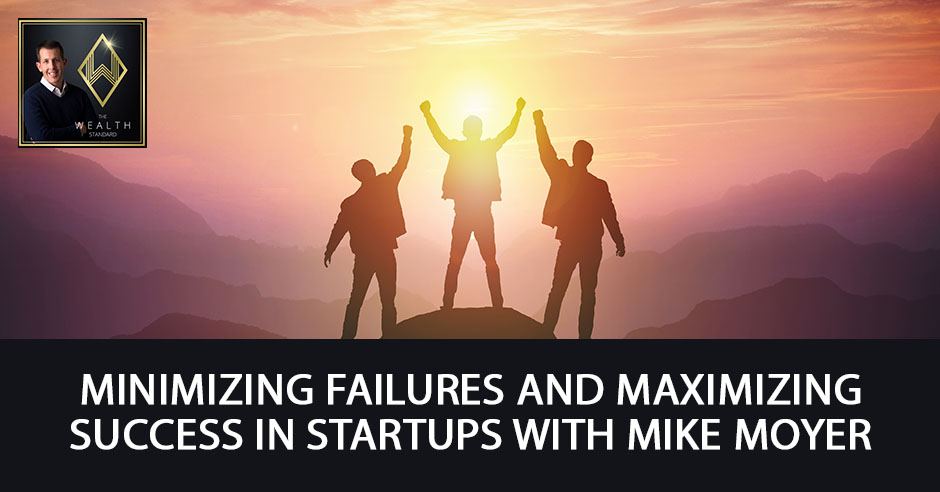
How can you achieve business success with lesser money and lesser failures? Mike Moyer gives us the answer to this question. Mike is the author of eight books that provide structured advice to people who want to solve specific business problems like splitting equity in their startup company or delivering an awesome sales pitch. In this episode, he reveals what he discovered in the startup and entrepreneur world about minimizing failures and maximizing successes. He also shows how we can solve problems with the least amount of money possible and how we can value our cash.
—
Watch the episode here:
Listen to the podcast here:
Minimizing Failures And Maximizing Success In Startups With Mike Moyer
My guest is Mike Moyer. He is the author of Slicing Pie: Funding Your Company Without Funds. There’s an updated version which is Slicing Pie Handbook. He also has a cool software that is used to equitably track the non-cash expense side of things. It’s a very fascinating book and software as well. His reach is huge and you’ll read that in the blog. Most startups end up in a legal dispute because most partnerships or most companies start as partnerships 50/50 or 33/33/33. It’s cut down the line depending on how many founders there are. Mike figured out a way to equitably track it. He sells thousands of books a month. He also works around the world. The book has been translated into multiple languages. You definitely want to pay attention to this. There’s relevance to the content of these things we get into any size of the business of how you value something that’s not necessarily cash related.
Also, if you want to stick with me to the end, there is something that I was sent for my birthday by my mom and it was based on an archeological dig in New York City. These bottles were pulled up and it has to do with an ancestor of mine that formed the original mineral water company in the United States. I’m going to tell you a little story at the very end of the blog. If you like what you’re reading, go back and check out the previous episodes on entrepreneurship and also the previous seasons as well. Go on to iTunes, give us a good review. That always helps to keep us present for those that are looking for ways in which they can broaden their perspective on wealth, strategy, entrepreneurship and other things financial. I’m going to get to my interview with Mike. I hope you enjoy it.
—
Mike, it’s awesome to have you on. Thank you for taking the time.
You’re welcome.
I’ve known you for a few years and connected with you at different events. You have an intriguing way in which you look at entrepreneurs. It’s more of what entrepreneurs don’t usually realize when they’re starting because they’re so focused on the idea and the product. Why don’t you talk to the audience about what you discovered in the startup world, the entrepreneur world and how you’ve helped them and guided them to minimize failure and maximize success?
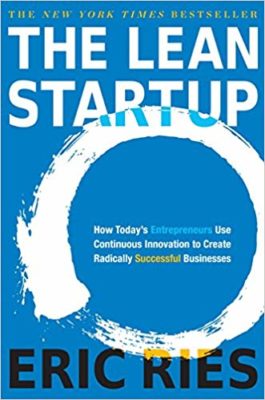
The Lean Startup: How Today’s Entrepreneurs Use Continuous Innovation to Create Radically Successful Businesses
In general, many entrepreneurs want to go out, raise a lot of money, grow fast and grow big. If you look at our heroes of Mark Zuckerberg, eCompanies, awesome entrepreneurs, these celebrity entrepreneurs, it’s so unlikely that it’s not worth worrying about. I was shooting for the fences all the time. I’ve made a pretty decent living as an entrepreneur. I’m proud of making a living as an entrepreneur. I hit singles and doubles, not home runs all the time. Most entrepreneurs that make a living as an entrepreneur do so by singles and doubles and unconquerable troubles. Because people are always swinging for the fences, they always want to grow as fast as they can, raise lots of money as fast as they can. They cause a lot of problems.
With the bootstrapping concept where you can re-invest, the idea is to invest a little amount of money as possible to get the most return or the ROI. How do you solve your problem with the least amount of money as possible? The Lean Startup book on your desk is a great tool and a great concept. The one thing that I encourage you to change with the concept, instead of a minimum viable product, you made it a valuable product. By valuable I mean the minimum you can charge for. I see a lot of entrepreneurs building products, giving them away for free and having free beta testers. This whole process creates a false sense of value creation. I know you can give it away for free and now pay for it. Will they pay for it? One of the big things that have been missing with the equation often is capturing revenue very early on.
The other side that I like to work with entrepreneurs on is the whole idea of what are your cost structures? What does it cost to run your business if you are running it? Entrepreneurs think they can finance themselves by not paying for stuff. Everyone finance themselves by taking out loans or selling equity or earning money where they have to pay bills. Startups think they don’t pay the bills. This idea of we can finance ourselves by not paying for stuff gives us a false sense of what our costs are. When we taught student entrepreneurs, “We can undercut the big boys because our costs are so low.” Your costs are low because you’re not paying yourself, you’re not paying rent, you’re working in your dorm room. Those are real costs that you’re not paying for some reason and think you don’t have to. You want to know what those costs are so that you can always buy-in your business. Those are the two areas that I focus a lot on. The third one is how you divide up equity in a startup company.
Get into that because that’s what initially intrigued me. It’s the way in which most companies I would assume start typically in a simple divided in half or 50/50. Some of the things you said are vital because there often isn’t a consideration for all the value involved in a startup company. Can you go through and walk through that whole theory or idea and maybe use some examples?
An equity is the first deal people do. The first they needed to do is sit down with partners and say, “How do we split the equity?” As you said, “I’ll go 50/50.” The majority of startups go 50/50. They say, “We’re buddies or we’re friends, let’s go half and half.” They’ll say, “It was your idea. You’re more important than me so you get 51% or 60%.” No matter what number you pick, it’s going to be wrong because things always change. The only way to get your equity a bit accurate is to effectively predict future events. My equity is based on what you’re going to do in the future. You promised to work full time, for instance. You promised to work hard to give me a lot of customers. You promised that you’re going to build a great brand or you promised you’re going to invest money. I promised you that it’s going to be worth a lot of money or that we’re going to raise money.
Giving away free beta testers creates a false sense of value creation. Click To TweetIf I can predict the future, I could get it right. Because I can’t predict the future, I can’t get it right. That’s the biggest mistake people make is they go in on this and divide equity in advance with the work being done. Because they can’t predict the future, they have to renegotiate later on. Renegotiation means something along the lines of, “I don’t feel like I have enough equity. Give me some of your equity or reduce your holdings.” People who have equity more than they deserve rarely bring it to people’s attention. If you have less than you feel like you deserve, you always bring it to people’s attention or you feel miffed or taken advantage of.
One of the problems we have is if I gave you 50% of my company and you do all the work, your motivation level goes way down. If I give you 10%, you may feel good about it for the first six months, for the next six months, you don’t feel too good about it. If you have a 50% cut and I renegotiated a 30% cut and you’re still doing the same amount of work, it’s a problem. No matter what happens in the future, it’s going to be wrong. It’s fundamentally a flawed system. All the advice we hear along those lines is plain wrong. It’s extremely calculating mistakes. The attorneys I’ve talked to estimate that 60% to 80% of all equity deals end up in a dispute that requires legal intervention. That means the chance of your equity split failing is greater than the chance of it succeeding.
This is a problem that I personally dealt with throughout my career and made me petrified to work with partners. When I did, I often got screwed. One time I was on the receiving end of the equity split. I got more of what I deserve. It was great. I made a lot of money. It’s fantastic, but I didn’t deserve it. Most of the time it’s just me getting screwed because I didn’t know better. Now I know better. The Slice of Pie model, which I’ve written several books about is the solution to that problem. It solves it 100%.
It even extends to intellectual property, office space and cash contribution. You have a way to value monetarily in a sense like with slices of pie. You have a way to value everything that goes into a company, whether it’s the market value of one of the founders who is taking a 50% pay cut, whether it’s office space and you even talked about college students. They’re paying rent. There’s value there if it’s being used partly for a startup. Talk about how you discovered all of these different pieces to a startup that were valuable, that weren’t necessarily taken into consideration with the traditional model.
You can’t say what the future’s going to hold. There are these unknowable things and predictions about the future. What is it going to be worth? If I think it’s going to be worth $1 billion and I’ll give you 1% of that, you’re going to be rich in your wildest dreams. What most people don’t realize is everything has a fair market price. Most established companies pay their bills. You are in business. You pay your bills. I’m in business, I’ll pay my bills. Everyone’s bill is paid, but startups don’t pay their bills. The value of something is what you would have paid if you did pay. If McDonald’s wants to build a restaurant in my garage, they have to pay me. If a law firm wants to license my likeness for their logo, they can pay.
We do pay for employees. We do pay for rent. We do pay supplies and equipment. All these things have fair market values. It’s the price that you would pay if you could pay because you will be paying when you can pay. If your company has $100 million in financing, you’re going to pay for your rent. You’re going to pay for your salaries. You’re going to pay for your travel expenses. Everything has a fair market value. The part that’s we’re going to focus on is what would we pay if we could pay? I always ask the same question, what would I pay if I could pay and I keep track of that. By keeping track of what I would pay, it gives me a feel for what my company cost structure is going to be when it becomes full force. Because when I reach break-even, that means I’m paying for everything. I can’t reach break-even if I’m not paying full salaries. I can’t reach break-even if I’m not paying my rent because I’m overstating profit and understating expenses. A break-even implies a fully loaded expense report and income statement, income and expenses. That’s a starting point.

Minimizing Failures In Startups: A break-even implies a fully loaded expense report and income statement.
You have online software. Your book talks a lot about this. You have a way in which you quantify that value where there isn’t money to pay it. You’re able to quantify it so at some future point in time, it will have essentially an equitable stake going forward.
The thing I’m thinking about is a game of blackjack. Do you know how to play blackjack? Let’s pretend that you and I go play blackjack together not as opponents but as a team. We’re friends so we’re going to split the winnings 50/50. We don’t know if we’re going to win. We don’t know how much we’re going to win. We don’t know how long it’s going to take to win. All we know is that we’re going to be friends. We have a good time playing the game. You go to a table and we each have $1 on the same hand to blackjack. The deal is two aces. We’re going to split the aces and double down. I’m out of cash and you’re not so you put $2 more down. You’ve bet $3 and I bet $1. We still don’t know if we’re going to win or how much we’re going to win and how long it’s going to take them.
The future is still unknowable. What we’re certain is you got $3 and I bet $1. If we win, does 50/50 sound fair? It should be 75/25. That is logical, it is obvious, it’s unambiguous. There’s no other way to think about it. I got to deal for 50/50. I could sue you and probably win because you agreed to it, but because you agreed to it and legally enforced it, it doesn’t make it fair. What’s fair is that your share of the winnings should be based on your share of the bets. When you contribute to a startup, it’s exactly the same thing. The bet is betting profits or capital gains of the company. The value of the bet is equal to the fair market value of our contributions. If you’ve worked for me for a year and you’re worth $100,000 and I don’t pay you, you have essentially bet your salary.
You may bet less than your salary. You’re going to bet a portion of your salary. If you have taken a 50% pay cut, I pay you half your salary and you’re betting the other half. If I use your garage to run my company, I don’t pay you rent. You’re paying the value of the rent. If you bring a screen-printing press that you had in your basement to give to the company, you’re betting that fair market value of the screen-printing press. If you buy plane tickets and hotel, I don’t reimburse you, you’re betting the value of those expenses. If you can contribute and you’re not paying for fair market value, it becomes a bet. It’s very simple, your share of the equity is based on your share of the bets.
One thing that wasn’t mentioned is cash. Let’s say somebody partnered that isn’t going to actively work in the company but puts cash in. How do you value cash or is it the same type of value as if somebody took a pickup? Is it the same type of value?
Equity is often used as a tool for incentives. It’s a lousy incentive because you’re going to have to work harder. Click To TweetThere are two kinds of contributions. There’s non-cash contribution, which are things like time, ideas, relationships, things that don’t require you to take cash out of your pocket. The cash contribution is cash out of your pocket. If I paid you $100 an hour to work for me and you want to buy something that costs $100, how many hours would you have work in order to earn that money?
I already know the answer. It’s for two hours because I have to pay taxes on it.
When I pay you, I pay Social Security taxes and employment taxes. When you receive the money, you pay income taxes. When you buy the thing, you pay sales taxes. You have to work for two hours. Cash is more scarce and has higher taxation than non-cash.
It’s contributed after those taxes.
If you gave me $100,000, do you want me to think twice before I spend it? That is why I want you to think twice. You have to align the interests of the investor and the entrepreneur. In Slicing Pie, there’s a unit called a slice. It’s a fictional unit of the amount of contributions like a poker chip. For every dollar non-cash you contribute, you’re betting two slices. For every dollar in cash, you’re betting four slices. I call those normalizers or multipliers. That formula smooths the difference between cash and non-cash. It reflects a great deal of risk we take when you start a company. That’s how you account for it. When we reach break-even or Series A, your share is equal to your slices divided by all the slices, just like in poker, it was your chips divided by all the chips.
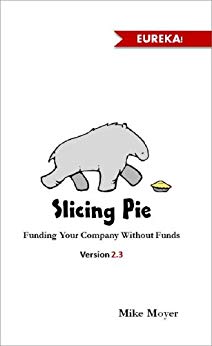
Slicing Pie: Fund Your Company Without Funds
I know we’re using different words to describe certain things. I have a couple of your books. This is the actual handbook, Slicing Pie Handbook. Maybe talk about the successful experiences you’ve seen by groups using this model. Do you have any off the top of your head that uses this where it’s been equitable and they went on to raise more capital and everyone was happy?
One of my favorite examples is a company called CloudSploit. There’s a case study on my website about it. This is the guy who had an idea for a company and he posted it to Reddit. Some guy posted back saying that was a good idea. The two of them have never met each other. They used Slicing Pie to start their company. Months later they raised money. It’s a pretty substantial company now. In 2010, I had published the first white paper on Slicing Pie and distributed it to entrepreneurs as far and wide as I could. In 2012, I wrote a book called Slicing Pie. In 2015, I wrote the Slicing Pie Handbook, which is the better one. It’s been translated into twelve different languages. I’ve sold thousands of copies every month all over the world. I have thousands of users of my software. I never once have I heard it not work. I never once heard of a single incident where it couldn’t solve the problem.
As I said before, 68% of all traditional deals wind up using legal intervention. Slicing Pie when used properly works every time. It’s a universal model like blackjack works the same in any country. It doesn’t matter. Fair is fair. If our dad gave us a cookie and said, “Split it up boys,” the only fairway is put it half and half because we’re both equally paid nothing for the cookie. If you bought the cookie, you can eat the whole thing. Fairness is not a matter of opinion. It’s a matter of fact. There’s only one version of it. That book has been used all over. It was translated into Persian for the Iranian market, which is a very different culture and very different economy. It’s the same model there as it is anywhere else.
I saw a presentation from a gentleman from Saudi Arabia. It was fascinating because the stereotype of that country is it’s this war-torn and very antiquated culture, but they have thousands of startups. There’s a huge entrepreneurial drive there.
There has to be because stable employment is not as easy to come by.
That will create an environment for entrepreneurs. For startups, hopefully, everyone’s resonated with some of these points. Is there relevance to existing companies that are maybe a couple of years old and they want to scale? It may require a capital contribution, debt or more risk. How have you worked with existing companies that are maybe taking things to the next level but already established?
It used to be that capitalism is the only means of production. Now it's about renting or borrowing. Click To TweetIf you’re already established, your stock theoretically has a value already. Once you share some of the value, you don’t need Slicing Pie. Slicing Pie assumes you have a zero evaluation. I can’t divide it by zero so I don’t know. There’s no way to value the stock so I can’t see how much it costs to buy so I can’t sell it. Once you have a valuation of your company, you can use the stock price of your company. If your company is not paying full salaries and not paying expenses like a startup company, your company is likely overvalued and you will not break-even. In order for a company to have value and not be on paid bills that do something pretty spectacular, like super loyal customers for instance, that people are willing to invest in. Established companies can use their stock price.
Equity is often used as a tool for incentives. You’re going to have to work harder. It’s a lousy incentive. Giving equity to someone in an established company is a waste of time. If you don’t value it enough to buy it or somehow acquire it by not getting paid, giving it to you is not going to make you work harder. If you have shares of Apple computers, you have them because you bought them. If you had to work for Apple computers, the fact you own the shares should not impact in any way, shape or form on how hard you work for them. What will impact them is if you work for them where you get paid salary and a particular bonus and how you’ve managed. Your ownership in Apple does not matter. What it does show is you believe in Apple. You think the future is bright, but it doesn’t mean that you’re not going to work. If you weren’t willing to buy Apple shares, you might still work the hardest for them. It just says you don’t believe in them.
By giving it to you, I gave you something you don’t value. When you give equity incentives to people, it doesn’t have the same impact as people think it does. What’s useful is if established companies have a good bonus program, good goals, milestones planned out and manage them better. Throwing equity out usually doesn’t work. If you’re giving equity, you should always give the opportunity of getting employees to buy into the equity using their salary like, “I’ll pay you a bonus of $10,000. You can either buy equity with it or not.” Those who can buy equity are showing an interest in the company. The difference between publicly-traded companies and private companies is private companies are harder to buy. Not everyone can buy them so if you have the opportunity to buy, it’s a good option for companies.
Have you done much work with Carta, the equity management software?
Capshare and Carta, there are a number of these companies that manage the equities, but equity becomes so complicated so fast that Excel becomes a lousy tool for it. Carta and Capshare are all great companies. Once your shares have a value, it’s a good tool to use. Slicing Pie is you use before you reach that point. One of the things that those companies do well is they manage different classes of stock and stock options. When the money starts coming through investment, it starts getting pretty convoluted in terms of how people are covering their own butts. They create different classes of stocks, stock option programs and different preferred shares. There were all kinds of rules. Each one of those classes of stock has to be tracked. Otherwise, it’s confusing. In the beginning, we’re all in the same boat. Your dollar of risk is worth the same as my dollars risk. I have to treat you the same. I can’t give you a special class of stock if you’re on my team. Slicing Pie assumes I’m going to give out plain vanilla common stock to dispense. Once the investor comes in, they can add on the rules on top of that. You’ve got to decide as a startup if those rules are worth the investment.

Minimizing Failures In Startups: We don’t have to own a factory or a machine. All we got to have are our brains, and the tools are all there free for the taking.
One of the people I interviewed a few months ago was one of the founding developers of Carta. I found the philosophy they have is pretty interesting. The CEO has this theory about how work has evolved over the years where it’s gone from a very indentured servant in medieval times to slavery to now paycheck and ultimately with equity. In using their platform, it does make it easier to manage, understand and value. What do you think is the future of how equity is handled based on what you’re paying attention to?
It’s getting complicated enough that those programs are important. What we’re seeing is it used to be that capitalism is the only means of production. Now it’s about renting as the means of production or borrowing as the means production or leasing it. We don’t have to own anything these days. We don’t have to own a factory or own a machine. All we got to have is our brains and the tools are all there free for the taking. Those things all have a value and just because we’re not paying for them doesn’t mean they’re not valuable. To the extent that we can use the equity to acquire these things is important. Bitcoin, those are tools that we’re seeing more and more of. In the early days when you’re starting out, you don’t need super tight security around these things using to keep track. I hope the future of startups is fair equity splits. Many companies are getting to unfair deals and it’s a heartbreaker. I won’t go to use Slicing Pie once they take their pie to move onto Carta, Capshare and things like that.
Mike, this has been awesome. What would you say are some things that entrepreneurs need to learn more about Slicing Pie? What are the best ways to go about doing that?
The website is SlicingPie.com. It’s always up and running. We have a software called the Pie Slicer, which tracks your pie in real-time based on contributions. Think about you can do accounting in Excel if you want or you can do it in QuickBooks. Slicing Pie is the QuickBooks for equity split. Accounting tracks what you do spend. Slicing Pie tracks what you don’t spend. The things you track on Slicing Pie are things that you should track anyway, which are your payroll and your expenses. The book is available in several languages. Wherever your local jurisdiction is, there’s usually some resource for you.
I’ve used the software a couple of times and it’s simple, straightforward and aligns right with your book and what you teach there. Mike, this has been a great conversation. Is there anything else that you think is relevant to share with entrepreneurs? I know you teach in that space. Do you still teach at Northwestern or another university?
Fairness is not a matter of opinion. It's a matter of fact. Click To TweetI teach entrepreneurship at Northwestern University these days. One of the things I always keep in mind is fairness is not a matter of opinion. It’s a matter of fact. It’s either fair or it’s not. Anytime anyone says base your split on some future assumptions, always think, “How can I get a fair answer?” There’s only one way to do this. There are two ways of splitting equity. There’s unfair and there’s Slicing Pie.
Mike, thanks for all your time. I appreciate it. This has been great. The best way to buy your book is on Amazon or through your website?
It’s on Amazon.
Congratulations on all your success. I didn’t know that there was that much popularity. It’s awesome. It’s been translated in multiple languages and you’re selling thousands of copies a month.
Thanks for having me. I appreciate it.
—
Here’s a story around this bottle. Clean drinking mineral water was big in Europe apparently. My ancestor was Samuel Hanbury Smith. My middle name is Hanbury and my son, Jack, his middle name is Hanbury as well. He was one of the original ancestors that came over from Sweden. He was a doctor and he came over, was originally in Ohio then went to New York City. He founded this mineral company. For those of you who have seen the Greatest Showman based on PT Barnum, there’s a character in there, Jenny Lind. She’s the one that funded my ancestor. She’s the original investor. She invested the equivalent of about $500,000 now, $3,500 back then.
This was the first company that he built his plants on. I’m trying to get more information on it. There’s a bunch of history there. Mike told me, “You should get the intellectual property, the websites, the URLs and the domains. It could be in the public domain. Start a little company and maybe you have it as one of those novelty water companies.” I did that already. I reserved the domains and going to go about getting the IP if it’s available. I’m going to involve my kids as well. I’ll keep you posted on that. It was a novelty, especially coincidental given the fact that we’re talking about entrepreneurship. I’m going to put my entrepreneurial mind to a new test and involve my kids and we’ll see what happens.
That’s what I wanted to share with you. I hope you tune in next time. We have more exciting guests on the docket. This one is trailblazers of the entrepreneur writing space. He is Michael Gerber who wrote E-Myth and the E-Myth for pretty much every major profession that’s out there. You will enjoy that interview. Definitely check that out. It’ll broaden your knowledge of how a company’s structures work and how entrepreneurship works. You’ll get a kick out of it.
Important Links:
- Mike Moyer
- Slicing Pie: Funding Your Company Without Funds
- Slicing Pie Handbook
- The Lean Startup
- CloudSploit
- Carta
- Capshare
- SlicingPie.com
- Pie Slicer
- E-Myth
- www.SlicingPie.com
- www.MikeMoyer.com
- https://Twitter.com/MikeMoyer
- https://www.Facebook.com/MikeDMoyer
- https://www.Amazon.com/Mike-Moyer/e/B0026DNX8K
About Mike Moyer
 Mike Moyer is the author of eight books that provide structured advice to people who want to solve specific problems like splitting equity in their startup company or delivering an awesome sales pitch. He mostly writes and speaks about business and entrepreneurship.
Mike Moyer is the author of eight books that provide structured advice to people who want to solve specific problems like splitting equity in their startup company or delivering an awesome sales pitch. He mostly writes and speaks about business and entrepreneurship.
In addition to writing and speaking, Mike is the founder of Fair and Square Ventures, LLC where he invests in early-stage ventures and provides consulting focused on management and revenue generation. As an entrepreneur, Mike has started a number of companies including Bananagraphics, a product development and merchandising company, Moondog, an outdoor clothing manufacturing company; Vicarious Communication, Inc, a marketing technology company for the medical industry; Cappex.com, a site that helps students find the right college and MosquitOasis which creates camping gear for kids. In addition to his experience as an entrepreneur, he has held a number of senior-level marketing positions with companies that sell everything from vacuum cleaners to financial data services to motor home chassis to luxury wine.
He teaches entrepreneurship at the University of Chicago Booth School of Business and Northwestern University. Mike is the author of Slicing Pie, Pitch Ninja, How to Make Colleges Want You, College Peas, and Trade Show Samurai. He has an MS in integrated marketing from Northwestern University and an MBA from the University of Chicago. He lives in Lake Forest, Illinois with his wife and three kids.
Love the show? Subscribe, rate, review, and share!

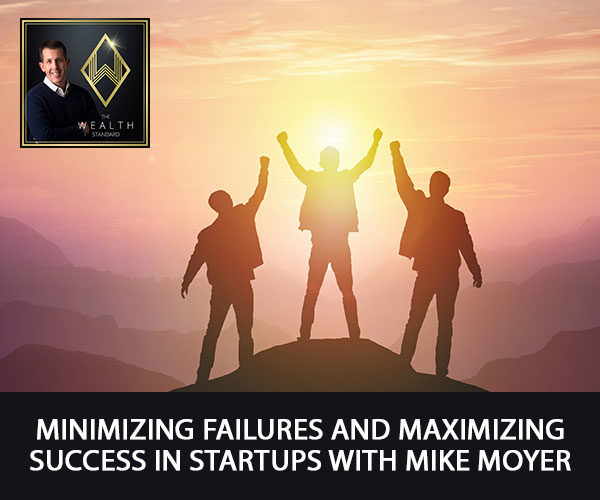
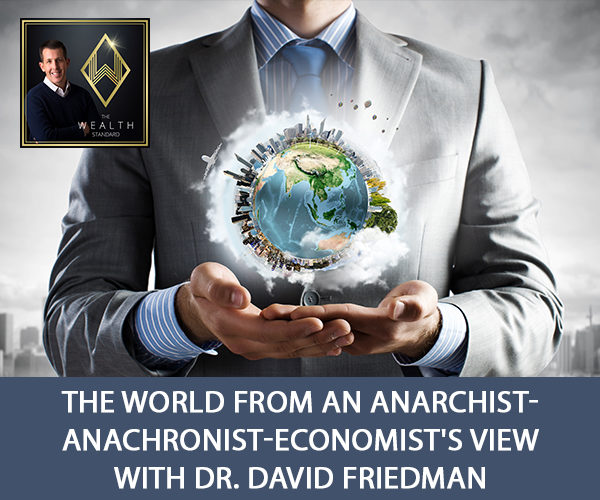
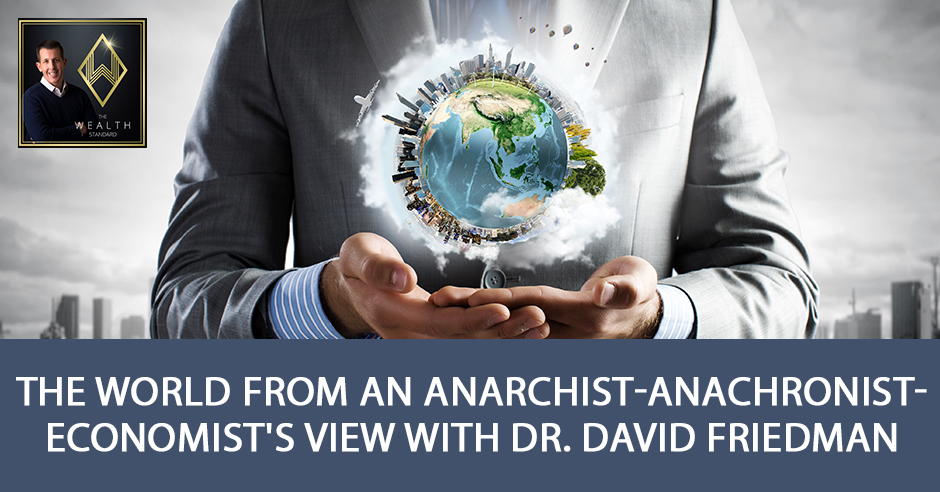
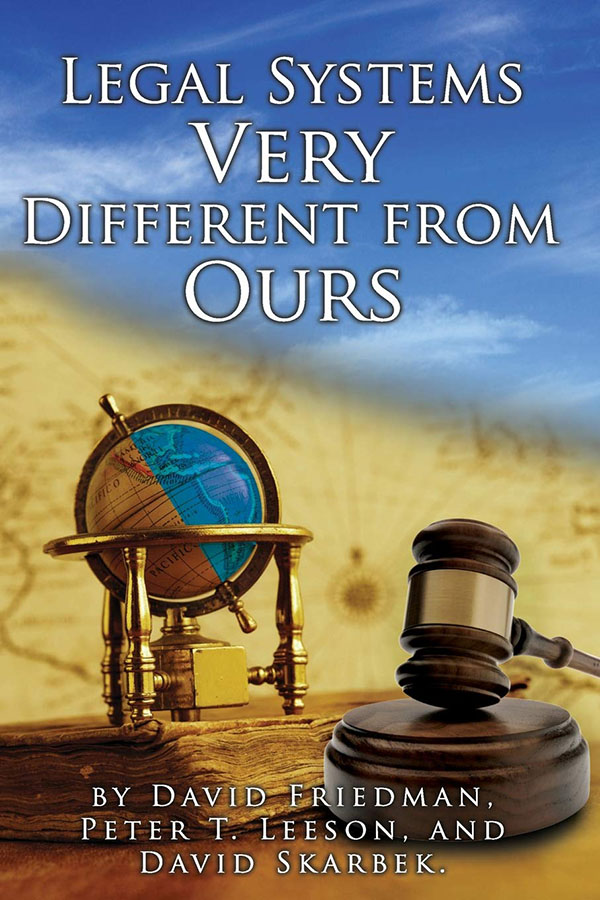
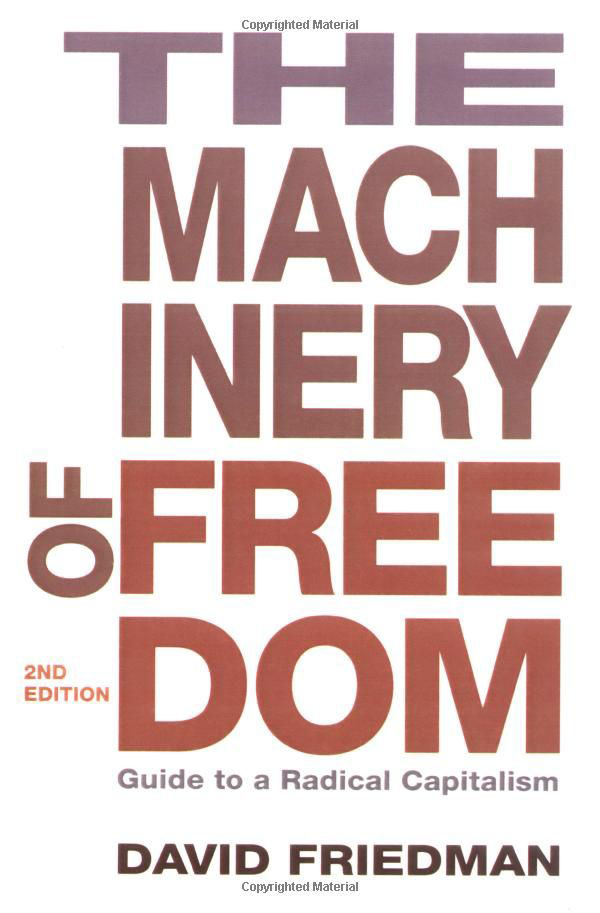

 Dr. David D. Friedman is an American economist, physicist, legal scholar, and libertarian theorist. He is known for his textbook writings on microeconomics and the libertarian theory of anarcho-capitalism, which is the subject of his most popular book, The Machinery of Freedom. Besides The Machinery of Freedom, he has authored several other books and articles, including Price Theory: An Intermediate Text, Law’s Order: What Economics Has to Do with Law and Why It Matters, Hidden Order: The Economics of Everyday Life, and Future Imperfect.
Dr. David D. Friedman is an American economist, physicist, legal scholar, and libertarian theorist. He is known for his textbook writings on microeconomics and the libertarian theory of anarcho-capitalism, which is the subject of his most popular book, The Machinery of Freedom. Besides The Machinery of Freedom, he has authored several other books and articles, including Price Theory: An Intermediate Text, Law’s Order: What Economics Has to Do with Law and Why It Matters, Hidden Order: The Economics of Everyday Life, and Future Imperfect.